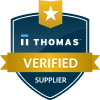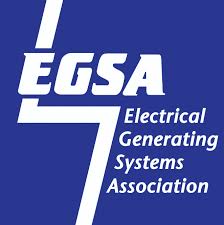Portable vs. Standby Generators
Hi, I’m Karen Cooper, and I’m with Duthie Power Services. I run the residential division for our home standby and portable generators. The home standby is perfect for homes that want everything, especially air conditioning. Refrigeration, lights, internet, Wi-Fi, the whole nine yards, this is the one you want.
If you don’t have the capability of doing that, then we have the other option of our portable generator. The portable generator will do everything but your central air conditioning. That seems to be the biggest point, but it’ll do your lights, and it’ll do your refrigeration. It won’t do your air conditioning, is what I mean, but it will do your refrigeration, lights, and everything else. But it is portable, so you could hire an electrician to install a manual switch for you, and in the event of a power outage, you just flick that switch on, and you’ll have what the electrician is powered up on a home standby. You don’t have to worry about flicking a switch as soon as the power goes out.
A permanent home standby generator comes with an automatic transfer switch, and the transfer switch is what is the brain for the operation. It will recognize when the power goes out. We’ll turn this on, we’ll do the same thing in reverse, we’ll recognize when the power goes back on, we’ll shut this off, and you’re back on the grid. This you’ll just have to do manually.
We do have both of these in stock in multiple sizes. This portable is the only item we have in stock that comes in 10 KW, and this is how it will be delivered. It is quite heavy, but it does come on wheels, and you’re able to wheel it around. If you don’t want to have a manual switch, you can just pull this up out of your garage, fuel it with natural gas, propane or gasoline, and plug it in your refrigerator. In the event of a power outage, just always remember to keep it outdoors and never run this indoors. If you have any questions, feel free to give us a call at Duthie, and we’ll be happy to help you.


